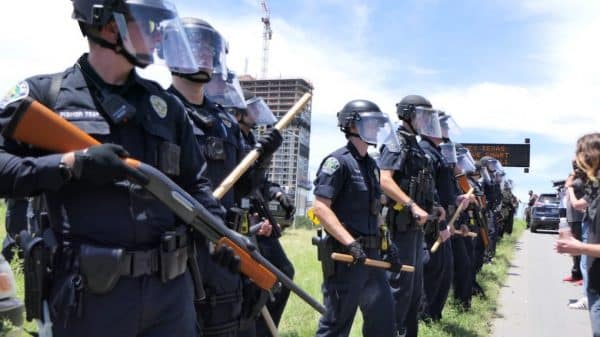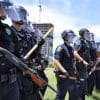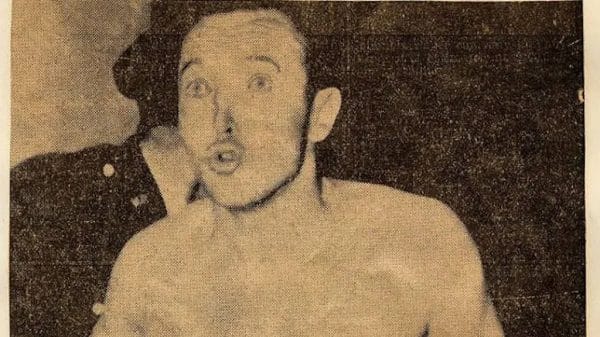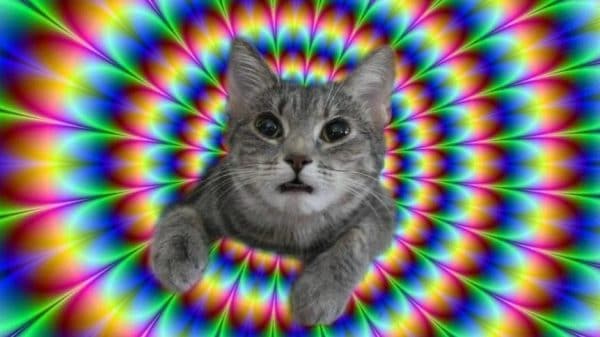Two years ago I took a look at depression and reflected upon my own struggles. Now we are going to do the same with anxiety. 40 million people suffer from anxiety disorders and only 36 percent of those seek treatment. Ingrained in humans for survival, the adrenaline burst coupled with the flight or fight response aided early humans when dealing with wild animals, but it proves to not be as useful in dealing with the daily stress of urban living in 2018. While fear is a natural emotion, it crosses over into becoming a disorder that requires medical attention based upon its duration and severity when out of proportion to what set this feeling in motion. I personally believe most mental illness is on a spectrum that manifests itself to varying degrees. This year Dragon Con served as a look at how my mental illness is subtly progressing. Or is it? It’s hard to tell where the rising number of attendees begins and anxiety increases, as I didn’t always feel this way. Was my reaction out of proportion given the environmental factors in place? Anxiety is classified into six main types: Generalized Anxiety Disorder, panic disorder, Phobia, Social Anxiety disorder, Obsessive Compulsive Disorder, PTSD, and Separation Anxiety Disorder. There is so much to say in regards to many of these subtypes they could almost deserve an entire article unto themselves. There is also a high co-morbidity rate among the varied illnesses, it can be hard to say where one ends and the other begins. I often feel many of these are so amorphis that the labels used in the DSM are for doctors to neatly file something in order to write a prescription. I have found anxiety is stimulated from higher swings of bi-polar disorder, stemming from varied forms of over stimulus. This often leads to periods of insomnia, where I wake up with racing thoughts, all fuelled by a sense of dread. If this gains momentum, then I find it is more dangerous for me than depression.
When I am depressed, it feels like gravity has been dialled up to high, there is lead cloud over me, so while I might want to die I can’t find the energy to do anything about it. When I am anxious, I do have the energy to take action along with fear whispering in my ear telling me future outcomes are all futile and suicide is the only sensible solution. Yes, even with an 8 year old daughter at stake, the voice says she would be better off without me. This was triggered one morning at Dragon-con. I found myself on the 10th floor of the Marriott and had to step step away from the railing when I realized I was lost in fantasies of jumping off. Granted it would have to come from the upper floors of the hotel get the desired result, as it would be something I would not want to survive. If I was going to kill myself, I would want a better plan in place, needed people in place with contact information to make sure my daughter was taken care of. I verbalized this to others, since that helps take the power away from my thoughts of self-harm.
I also verbalized that I was running on too little sleep and nourishment. Medicine is not a magic bullet, making self-care equally important – I like to think of meds as the gas that gets me on the on ramp of life. Keeping a balance, as high stress levels of stimuli from things like conventions can set the anxiety in motion. This doesn’t mean I can’t engage in things I enjoy, but I have to do so with mindfulness. A good example was this most recent Frolicon, where I had a set place to be: the Dungeon. I think the one place and one job was less overwhelming. I think that while I was on my feet as much, I got a little more sleep this year and made it to the gym most mornings, as opposed to one time over the course of the weekend. Disability services for all conventions of this sort might want to have a place for such self-care, a place to drink water, eat food, rest to get away from the overload, as the stimulus can send you into a higher swing with the inevitable crash. What was once an escape that provided perspective on my place in the world, mental illness made me feel like an outsider among outsiders. I have to find my own quiet places, thus I’m often forced to hide out in service hallways.
Whatever the subtype of anxiety, it can be managed with focused self-care skillsets like DBT, therapy, medication and proper self-care. Disengaging before it is allowed to turn into a racing nightmare in your head. The recovery process might be messy. When you feel like you are walking around in the world without any skin on, even a breeze can be painful, making self-soothing skills and mindfulness essential tools. I think like all mental illness, the most important thing is to talk about it. I can’t expect those who care about me to know how to best to walk with me during the times I am struggling if I don’t let them know where I am at. This can be harder than it sounds, but without this I continue to isolate myself and push others away.

















